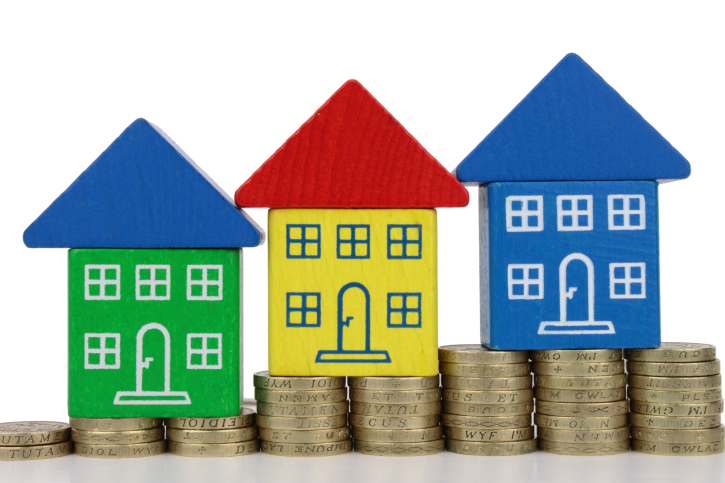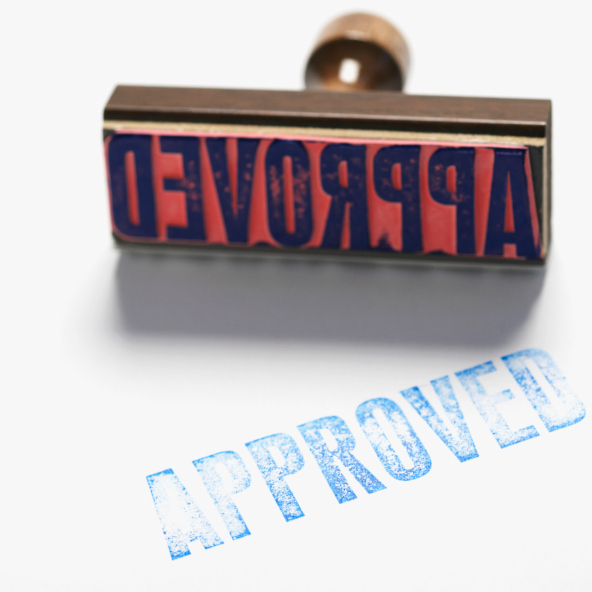 Buying a home isn’t cheap – and even though mortgage rates are low, your own financial circumstances may mean that your monthly payment is more than you can afford. Whether you’re a new buyer looking to save money or a cash-strapped owner who needs to free up extra income, there are several ways you can lower your monthly payments – here are just five of them.
Buying a home isn’t cheap – and even though mortgage rates are low, your own financial circumstances may mean that your monthly payment is more than you can afford. Whether you’re a new buyer looking to save money or a cash-strapped owner who needs to free up extra income, there are several ways you can lower your monthly payments – here are just five of them.
Make 13 Payments Every Year
If you have some extra money and you’re looking to pay down more of your principal amount, making 13 annual payments instead of the usual 12 is a great way to not only reduce what you owe, but also lower your monthly costs. Most lenders will allow you to make one additional lump sum payment per year on top of your regular monthly payments. Pro tip: Combine your tax refund and Christmas bonus into one big lump sum to pay down your mortgage.
Still Paying PMI? Ask Your Lender To Cancel It
Private mortgage insurance is a standard cost that you’re legally obligated to pay if your down payment was less than 20% of your home’s value. But once you’ve paid off that 20%, you’re no longer required to have PMI on a conventional mortgage. If you’ve built up 20% equity, talk to your lender about removing PMI from your mortgage agreement – it could save you thousands.
Recast Your Mortgage
If you’ve been diligently paying your mortgage for years but suddenly run into money problems, recasting your mortgage is a great way to make your monthly payments easier to manage. Recasting is fairly simple – it takes your remaining loan balance and stretches it across your original loan term. For example, if you’re 15 years into a 30-year mortgage that has half of its balance remaining, you can recast your mortgage to pay off the balance over another 30-year period.
Facing Financial Hardship? Get A HAMP Modification
If you encounter financial hardship, you can ask your lender if they offer a Home Affordable Modification Program (HAMP). HAMP is a government program designed to make housing more affordable for low-income citizens. It’s possible to save a significant amount of money with a HAMP modification.
Contact your trusted real estate professional to learn more about getting the most from your home financing.
 Finding the right mortgage can be a struggle. There’s a wide array of mortgage products on the market, and you don’t always need to get a mortgage through your bank – and with so many options, it’s hard to know which one is your best bet.
Finding the right mortgage can be a struggle. There’s a wide array of mortgage products on the market, and you don’t always need to get a mortgage through your bank – and with so many options, it’s hard to know which one is your best bet. If you’re considering whether home ownership is the right decision for you, there are lots of different factors you’ll want to take into account. Do you want to keep moving around, or are you ready to lay down roots in a community? Are you prepared for the additional upkeep that home ownership requires?
If you’re considering whether home ownership is the right decision for you, there are lots of different factors you’ll want to take into account. Do you want to keep moving around, or are you ready to lay down roots in a community? Are you prepared for the additional upkeep that home ownership requires? Credit is of considerable concern when it comes to buying a home, but if you’re on the market for a new place in the next few months there may be some timely news that applies to you. If you haven’t heard about the changes to the Federal Housing Administration’s (FHA) credit score minimum, here’s some information on the recent reduction and how it may impact your home purchase.
Credit is of considerable concern when it comes to buying a home, but if you’re on the market for a new place in the next few months there may be some timely news that applies to you. If you haven’t heard about the changes to the Federal Housing Administration’s (FHA) credit score minimum, here’s some information on the recent reduction and how it may impact your home purchase. A monthly mortgage can seem like enough of a financial responsibility on its own, but there are many factors involved in home ownership that affect its fiscal feasibility. If you’re in the market for a house and are wondering how your income will stack up against the rest of your expenses, here’s how to determine a home cost that’s reasonable for you.
A monthly mortgage can seem like enough of a financial responsibility on its own, but there are many factors involved in home ownership that affect its fiscal feasibility. If you’re in the market for a house and are wondering how your income will stack up against the rest of your expenses, here’s how to determine a home cost that’s reasonable for you. Traditionally, getting a mortgage requires you to have a level of income appropriate to the size of home that you’re buying. But for a lot of low-income and minority borrowers, a simple measure of one person’s income isn’t an accurate measure of whether or not that person can afford a home.
Traditionally, getting a mortgage requires you to have a level of income appropriate to the size of home that you’re buying. But for a lot of low-income and minority borrowers, a simple measure of one person’s income isn’t an accurate measure of whether or not that person can afford a home. Buying a home isn’t cheap. But if you’re determined to become a homeowner, the FHA home loan program can help. This loan program, ideal for first-time buyers with low incomes, can help you to build your credit and make home ownership a reality.
Buying a home isn’t cheap. But if you’re determined to become a homeowner, the FHA home loan program can help. This loan program, ideal for first-time buyers with low incomes, can help you to build your credit and make home ownership a reality. If you’re in the market for a new home, you’ll most likely need a mortgage in order to afford it. But for some home buyers, getting a mortgage isn’t easy. Banks and other lenders are often hesitant to lend money to certain consumers, often for good reason.
If you’re in the market for a new home, you’ll most likely need a mortgage in order to afford it. But for some home buyers, getting a mortgage isn’t easy. Banks and other lenders are often hesitant to lend money to certain consumers, often for good reason. The mortgage process is a long and complicated one, with a number of similar-sounding terms that can easily confuse first-time homebuyers. A pre-approval is not the same thing as a pre-qualification, and it’s important to understand everything that goes into a pre-approval. Being declined during the pre-approval process means you’ll have a hard time getting the funds you need to buy your home, so it’s important that you know what the process is going to look like before going into it.
The mortgage process is a long and complicated one, with a number of similar-sounding terms that can easily confuse first-time homebuyers. A pre-approval is not the same thing as a pre-qualification, and it’s important to understand everything that goes into a pre-approval. Being declined during the pre-approval process means you’ll have a hard time getting the funds you need to buy your home, so it’s important that you know what the process is going to look like before going into it. If you’re about to seek approval for a mortgage, you’ll want to ensure you have a solid credit score and clean financial records to boost your likelihood of being approved. There are certain characteristics that lenders want to see in a mortgage applicant before they agree to give a loan, and you want to prove that you’re a responsible borrower. But certain behaviors can easily tank your application and crush your home ownership dreams.
If you’re about to seek approval for a mortgage, you’ll want to ensure you have a solid credit score and clean financial records to boost your likelihood of being approved. There are certain characteristics that lenders want to see in a mortgage applicant before they agree to give a loan, and you want to prove that you’re a responsible borrower. But certain behaviors can easily tank your application and crush your home ownership dreams.